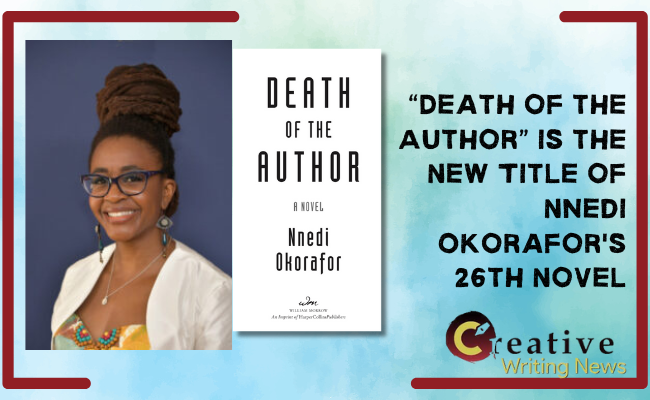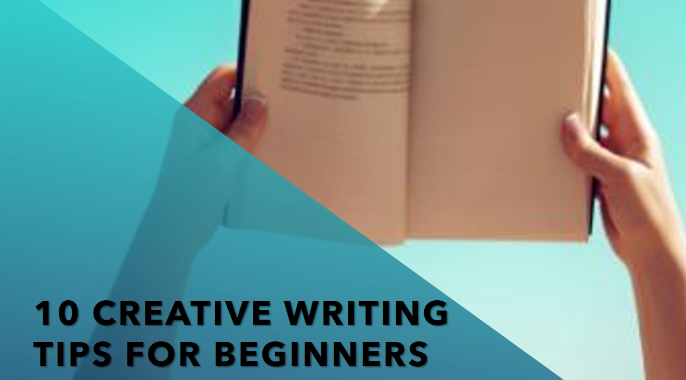What Makes A Good Story By Charles Opara
Most times, as writers, we discuss the art of writing but we don’t say much about the art of storytelling or story crafting. A lot of us are good writers, but the real breakthrough starts with storytelling. Because it is what takes your writing from raw art to real entertainment. If writing is artistic expression, storytelling is art direction. The two go hand-in-hand. But can be separated.
Read: How To Creatively Write A Resume
Whenever you want to look for what a story is really about, begin by looking for the internal conflict.
In a good story, there are usually two types of conflicts: an external one and an internal one.
Why?
Because a well developed story makes us appreciate a character’s inner turmoil or his emotional/ psychological struggle. Stories with internal conflicts are deep because they paint pictures about the human condition, the human struggle, the human mind, the human character and the human virtue, the human resilience, and more.
Ultimately, the resolution these internal conflicts by characters who show humanities (even if they are aliens–hey, they could be aliens or superhumans, you know) gives your story its meaning, an underlying message or lesson that can be framed into one sentence called the thematic statement.
Let’s analyze some elements of fiction–plot, theme and conflict–with this story.
The Bus
Brock Clarke
My car won’t start. So I call my wife Therese and tell her that. She says “Oh no!” and then offers to pick me up right away. It’s almostfive o’clock. I’m in the parking lot outside my office. It’s been a long day, the kind of long day that the only thing that gets you through it is the thought of going home. But I tell Therese “No.” Because I’m still angry about her and Eric, and as punishment I will . . . not let her pick me up? Before I became a victim, I thought they were noble and righteous. But now I know a victim is like a petty thief, armed, but only with weapons that are prone to misfire, and that in any case are mostly pointed at himself.
So anyway, no, I will not accept Therese’s offer. Instead I will take the bus home. After I tell Therese this, she asks, “How much longer are you going to keep punishing me?” I do the math. It’s been four months since she told me she’d had an affair with Eric, which means I’ve been punishing her for four months already. The affair was over by the time she confessed, and she refused to say how long it had gone on before she ended it, so it’s difficult to know how much time to add for that.
But Therese was the one to end it—she told me that and I believe her—and that she was the one to end it definitely counts for something. That’s on the one hand. On the other hand, Eric is my best friend, was my best friend. He was also Therese and my twin sons’ Little League coach, and when Therese told me about the affair, it happened to be when she and I were in the car driving to pick the twins up from practice, and when we got to practice I jumped out of the car and ran into the dugout and grabbed one of the bats out of the rack and. . . .
“One more month,” I tell her, and then hang up. It feels good and hopeful, to have that deadline, to know everything will be back to normal soon. The bus arrives. It’s a twenty minute ride. For the first ten minutes I feel virtuous, the way people who don’t usually take public transportation feel when they take public transportation. Inside the bus the air is warm, and smells like boots and candy.
Outside the world is alive with snow. Bunnies of it are swirling around on the streets. I see someone on the sidewalk tip his head up and open his mouth and wait for the snow to fall in. What a great thing to do! What a great world that gives us a chance to do it!
Then the bus stops at a bus stop. This is not so strange, of course. But nobody gets on, and nobody gets off except for the driver, who runs across the street and into a combination KFC/Taco Bell. There is something extremely disturbing about bus drivers who abandon their buses mid-route and who then sprint across the street into fast-food restaurants, leaving you to wonder about the severity of their diarrhea.
But then again, maybe the guy is just really hungry. Let’s not think about the bus driver, I tell myself, let’s focus on the guy trying to catch snowflakes with his tongue. He’s still at it, head back, mouth open, tongue out. This goes on for another couple of minutes, to the point where it stops seeming sweet, or magical, and starts seeming that maybe something is wrong with the guy, that he’s some sort of pervert, insatiable for snow, or that he tipped his head back and it got stuck that way and that he’s just helplessly waiting for someone to notice his plight and push his head forward or at least call a doctor.
No one does. He stays like that for at least five minutes. Meanwhile people are making mutinous noises on the bus, which is still running. A man near the front of the bus yells, “Does anyone here know how to drive a bus?” and another man in the row in front of me yells back, “I do!” and a woman in the seat next to him says, “No, you do not.” Then they furiously whisper at each other. I can’t hear what they’re whispering, but I can imagine that it might be something like what Therese and I would have been whispering had she told me about her and Eric while on the bus instead of in our car. In our car, we did not whisper; we shouted. At least, I did; I shouted some awful things, including how I was going to kill Eric. I didn’t kill him, of course. But I did hit him in the knee with that bat, which was aluminum.
It made an awful sound—somewhere between crack! and ding!—and I’m convinced it was the sound more than the sight of my striking their coach, my best friend, that made the twins start crying, and then of course Therese started crying, and then of course I started crying, and then some of the other kids on the team who had nothing to do with anything started crying and pretty soon everyone on the field was crying, everyone except for Eric, who was sitting on the ground, holding his knee, but otherwise looking quite calm, quite adult, quite handsome, and God, I wanted to hit him with that bat again, and the twins must have sensed that because they tried to wrestle the bat away from me, saying, Daddy, no, why, why are you trying to hurt Coach Eric (they called him Coach Eric) and do you know that I was upset enough to say, Why don’t you ask Coach Eric and your mother why, and. . . .
There is nothing else for me to do on the bus but think about all this, and so I do that and I do that until another passenger shouts, “There he is!” I look out the window and see the bus driver running back across the street. “There he is!” I repeat, and I don’t think I’ve ever been so happy to see a person in my life, until I notice that the bus driver doesn’t have any food with him and so there is no doubt about what he went into the restaurant to do and then he climbs back into the bus and waves at us in apology and I notice that he’s still wearing his fingerless gloves and I wonder if he took them off when he wiped himself and I wonder if a month is going to be enough time, if any amount of time is ever going to be enough time, and then I feel sick and know that I either should have just taken the ride from Therese or not gone home at all.
So the elements of fiction are
1. Plot
2. Theme
3. Setting
4. Character
5. Conflict
6. Style
Where POV and Voice fall under style.
Let’s appreciate how conflict is distinct from plot and theme.
1. Plot is the story that revolves around the external conflict. It is what happens in your story.
Look at The Bus by Brock Clarke
The Plot is about a man who is taking the bus home. (That’s what actually happens in it. The others are backstory)
Why is he taking the bus home?
Because his car broke down.
This is the external conflict or problem.
The breaking down of his car is the external conflict.
2. The theme is what your sub-story (or deeper story) is about. And that sub-story revolves around the internal conflict.
Let’s look at The Bus and find its sub-story or internal story.
A man gives his wife a hard time by refusing to let her give him a ride back home when his car breaks down.
Why is he giving her a hard time?
Because he is still hurting over her affair with the school coach, his best friend (which they had been resolved).
So the internal conflict is the emotions he is still dealing with over knowledge of his wife’s unfaithfulness.
The theme then is unfaithfulness. Or dealing with unfaithfulness. That’s what the story is about (It’s not about his dreadful bus ride. The bus ride is what happens in the story. It’s the plot, not the theme. Sorry I’m repeating)
So you can see that the conflict is a separate element of fiction from Plot and Theme.
Plot is the story surrounding an external conflict; Theme is both the idea and the message that results from the internal conflict.
So you should think of what your conflicts will be before you start your story because that will help you decide what happens in it and what is going to be about. Simple.
And remember, you can have several external conflicts, but try to have only ONE internal conflict. If you have more than one internal conflict you could be telling two stories in one. That’s too much. And that’s not good from the perspective of art. An internal conflict is what a story is really about and so having two of them… (If you are writing a novel, try to have one internal conflict per chapter; if you’re writing a short story, one internal conflict per story) Also remember that one internal conflict can result in several external conflicts in your story or chapter.
For instance, from The Bus, if that story was longer, the man after his dreadful bus ride could have gotten off at his stop and then been chased by muggers. This results in a new external conflict: muggers chasing him.
Earlier, I said the theme is both the idea (concept) and the message (statement) your story makes. If you have an internal conflict, you already have an idea. What remains now is the message you will make. That means your theme is not complete unless your story says something. And you make it say something (that thing you want it to say) by how you end your story.
The other elements of fiction Character, Setting are self-explanatory.
The last, Style, is also called ‘writing style’. It embodies the writing aspect, the literary expression, things like POV choice, Voice, Tone, Diction and more. It is very broad.
Remember how I said there’s a writer and there’s a storyteller; a good writer is not necessarily a good writer and vice versa.
Writing is literary expression; Storytelling is literary direction.
Well think of the other five (outside style) as all the things you need to plan before writing that makes you a good storyteller, a good story craftsman. And look as style as everything you need to do that makes you a good writer.
So folks, direct and express your art. In other words, craft your story and then decide how you want to go about writing it before writing it. And if asked what makes a good story, tell them it’s a story that has the six elements of fiction (plot, theme, conflict, setting, character and conflict) in them.
Well, this is the wrap-up. Thanks and goodbye.
BIO
Charles Opara is a speculative fiction novelist currently finishing his first novel. His short stories cover a much wider range of topics, some humorous. He is a programmer based in Port Harcourt, Nigeria, and a member of the Association of Nigerian Authors, who remains captivated by the logic involved in writing stories and programs.





Pingback: 2018 African Writers Awards—Apply – Creative Writing News